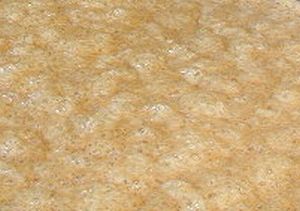Fermented Stevia: A Promising Zero-Calorie Sweetener in Cancer Treatment

In a groundbreaking development in cancer research, scientists from Hiroshima University in Japan have discovered that fermented stevia, a zero-calorie sweetener widely used in culinary practices, may possess potent anti-cancer properties. This research, published on July 25, 2025, sheds light on the potential role of this humble plant in combatting pancreatic cancer, one of the deadliest forms of the disease.
Pancreatic cancer has a notoriously poor prognosis, with less than 10% of patients surviving five years post-diagnosis, largely due to the disease's asymptomatic nature in its early stages and the limited effectiveness of conventional treatments like chemotherapy. As reported in the Journal of Cancer Research, researchers are increasingly turning to plant-based compounds for novel therapeutic options, as many existing chemotherapy drugs have botanical origins, including paclitaxel derived from the Pacific yew tree and vincristine from the Madagascar periwinkle.
Stevia, known scientifically as *Stevia rebaudiana*, is a plant native to South America. Traditionally recognized for its sweetness, it contains bioactive compounds that have shown promise in earlier studies for their anticancer and antioxidant properties. However, unfermented stevia extracts have demonstrated limited efficacy, necessitating higher dosages to impact cancer cells significantly. This limitation has prompted researchers to investigate the effects of fermentation, a process that has been shown to enhance the bioavailability of compounds in other foods such as soy and ginseng.
The innovative study led by Dr. Hiroshi Takeda and his team focused on fermenting stevia with *Lactobacillus plantarum SN13T*, a strain commonly found in fermented foods. Their findings revealed that this fermentation process produced a compound called chlorogenic acid methyl ester (CAME), which exhibited markedly stronger anti-cancer effects compared to raw stevia extracts. In laboratory experiments, CAME was able to induce apoptosis, a process that causes cancer cells to self-destruct, while sparing healthy cells such as kidney cells. This selective action is significant, as it addresses a major goal in cancer therapy: targeting malignant cells while preserving normal tissue.
Dr. Takeda noted, "The ability of CAME to alter the genetic programming of cancer cells by activating pro-apoptotic genes while suppressing survival genes represents a dual approach to slowing cancer progression. This discovery underscores the potential of fermented foods to yield new medicinal compounds."
Furthermore, the fermented stevia extract demonstrated enhanced antioxidant capabilities, effectively neutralizing oxidative stress markers linked to cancer and other diseases. This dual action of anti-cancer and antioxidant effects positions fermented stevia as a potentially valuable addition to cancer treatment strategies.
Despite the promising laboratory results, it is crucial to approach these findings with caution. As Dr. Sarah Johnson, a noted oncologist at Harvard Medical School, explained, "While these results are compelling, they are based on in vitro studies. Clinical trials involving human subjects are essential to determine the efficacy and safety of CAME in cancer treatment. Many substances that show promise in laboratory settings fail to translate effectively in clinical practice."
The implications of this research extend beyond just pancreatic cancer. The growing interest in microbial biotransformation—the process of using beneficial bacteria to create novel compounds from plant sources—highlights a significant shift in therapeutic approaches in oncology. As Dr. Emily Chen, a biochemist at Stanford University, emphasized, "Harnessing everyday foods and their natural microbes could open new pathways for developing targeted cancer therapies that are both natural and cost-effective."
As the scientific community seeks more efficient and less toxic cancer treatments, fermented stevia could represent a pivotal step in that direction. The intriguing potential of this natural sweetener reflects a broader trend in exploring plant-derived compounds for innovative medical applications. Future research will be crucial in validating these findings and potentially paving the way for new cancer treatment modalities that harness the power of nature.
In conclusion, while the discovery of fermented stevia's potential anti-cancer properties is still in its infancy, it opens the door for further exploration into the use of natural products in oncology. With continued research, this humble kitchen ingredient could play a transformative role in the fight against one of humanity's most challenging diseases.
Advertisement
Tags
Advertisement





